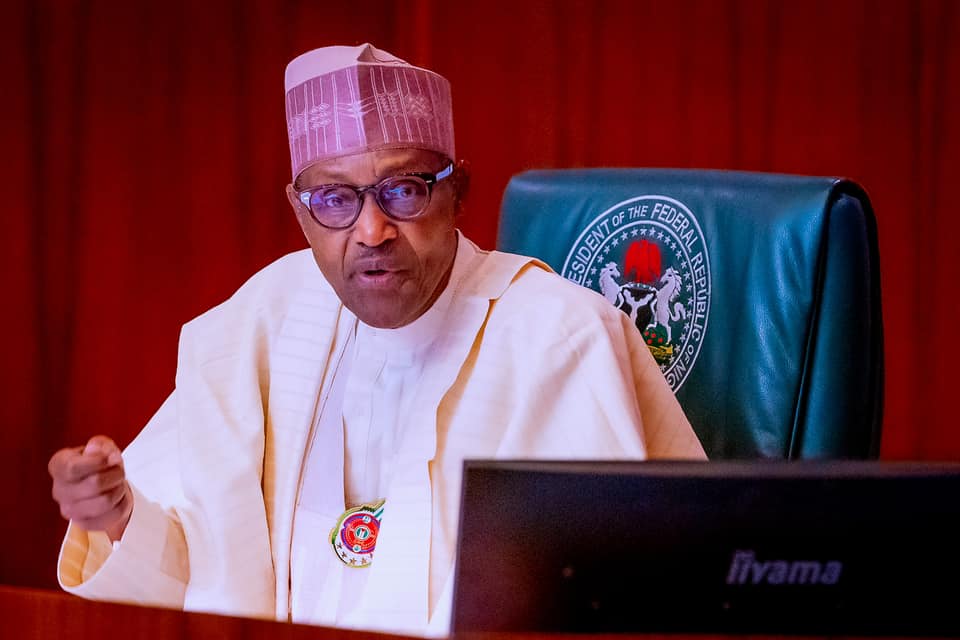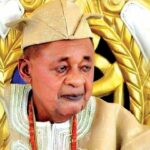
COMING in cascades, a series of reports demonstrate the weakness of the anti-corruption war of the President, Major General Muhammadu Buhari (retd.). News that Nigeria dropped five places in Transparency International’s 2021 Corruption Perception Index and was rated West Africa’s second most corrupt, was followed by strong concerns voiced by the United States on the country’s enduring romance with graft amid other sordid revelations of fraud in public places. Buhari should stop living in denial; corruption is winning the war. He needs a new strategy to defeat it.
Within and beyond the country’s shores, dismay at the tenacious staying power of pervasive graft despite the regime’s avowed assault and the brave efforts of anti-graft agencies, is prevalent.
Beyond rhetoric, reality beckons. In the CPI, Nigeria was ranked 154 out of 180 countries, down from 149 in 2020. It is ranked the second most corrupt in West Africa after Guinea, scoring 24 of 100 possible points in the index, down from 26 in 2019, and 25 in 2020. Later, the US Consul-General in Lagos, Claire Pierangelo, conveyed her country’s growing concerns on corruption in Nigeria. She said President Joe Biden’s administration viewed graft as a major security concern and reiterated support for anti-corruption initiatives and collaboration to ramp up the anti-graft programme.
The country is still awash in graft. Days earlier, BudgIT, a civic-tech outfit, had uncovered 460 duplicated projects valued at N378.9 billion. They were inserted into the 2022 budget by the National Assembly, where budget padding has become endemic with no consequences for the lawmakers and the complicit civil servants. From the top echelon down to the ministries, departments and agencies, allegations of graft are rife. Looting is also vigorous at the state and local government levels where many state governors, past and present, LG bosses and other officials have been fingered.
The problem predates the Buhari regime. Indeed, it was in recognition of its magnitude that prompted the then President Olusegun Obasanjo to establish the Independent Corrupt Practices and Other Related Offences Commission and the Economic and Financial Crimes Commission in 2000 and 2003 respectively. Up to $400 billion in public funds had reportedly been stolen between 1960 and 1999. Quoting credible sources, the Human and Environmental Development Agenda said Nigeria suffered illicit financial outflows of $15 billion to $18 billion annually, 30 percent of the total IFFs from Africa. In the 2020 Basel Anti-Money Laundering Index, Nigeria was ranked 14th “most vulnerable country” out of the 125 surveyed, down from 33rd in 2017. A US Department of Commerce report suggests that at least 40 percent of all public sector procurement funds in Nigeria is lost to corruption.
Scholars identify various types of corruption – supply versus demand corruption; grand versus petty corruption; and public versus private corruption. Public Safety Canada adds political corruption that includes electoral fraud, and “state capture” where policies, laws and government decisions are adopted to favour private or group interests. All are present in Nigeria. From the LG office to the ports, airports and the security agencies, graft is still strong. The Nigeria Police for instance has been ranked the worst police department in the world by the World Internal Security and Police Index. Many MDAs, including the national oil company and the central bank, often fail to remit funds or file their accounts with the appropriate authorities without censure.
Nigeria’s abiding tragedy is that Buhari, who rode to power in 2015 promising to defeat corruption, has failed to crush it. Obviously, he decries corruption and seeks its end. He should however admit his missteps and do everything possible to recover the momentum in the 16 months he has left in office. His failure was inevitable. First, he had and still has no discernible effective strategy. Corruption has so eaten deep into the country’s fabric, penetrating every institution, including the judiciary. It is therefore an asymmetrical war that requires meticulous planning, strategy, adept management, and effective coordination. The regime had none of these.
Worse, Buhari failed to scrupulously headhunt and appoint the right persons with the passion and persistence to destroy corruption. Many still question the zeal of his appointee as Attorney-General of the Federation whose office is crucial to winning.
In the absence of effective supervision by the President or any appointee expressly designated to do so on his behalf, in-fighting among agencies has been rampant. So have been compromises such as letting off some high-profile suspects for temporary political gain.
There is sometimes no effective enforcement of regulations. A report by GFI in December 2020 said among other findings that the anti-corruption fight “appears to be politicised,” that the Treasury Single Account measure commendably adopted by the regime had not been fully effective due to operational lapses, that the whistle-blower programme introduced in 2016 was whittled down, while officials had frustrated the smooth operation of the Freedom of Information Act.
Failure did not arise from total lack of trying. Apart from the TSA and whistle blower initiative, the EFCC and ICPC have made vigorous, sometimes heroic, efforts to chase down corrupt persons, won some battles, and recovered huge sums and properties, and prosecuted hundreds. But these pale beside the magnitude of graft and the subversion by the political authorities. The agencies are battling a mammoth. Above all else, they need Buhari’s full, unalloyed backing and direct access to him to cut through the compromised layers of authority.
As this newspaper reminded him in the past, stealing money is not the only form of corruption; nepotism, sectionalism and favouritism in appointments and policies invariably also tend to corrupt institutions. Buhari’s poor record in these areas subverted his war on corruption from the outset.
To leave a potent legacy, he should shake up the security and law enforcement apparatus. Appointments should emphasise merit and reflect Nigeria’s diversity. There should be no sacred cows, all pending corruption cases such as the Hushpuppi/Kyari, Nigerian Ports Authority, and EFCC/AGF reports should be made public, and the culprits punished. Defence spending should be probed. Too many highly politically exposed persons are escaping the dragnet. Investigation and prosecution need to be undertaken with seamless efficiency.
As his major programme, Buhari should personally take charge, mandate monthly briefings, and appoint a coordinator backed with the full weight of his office to synchronise the war on graft and terminate inter-agency in-fighting. Above all, he needs to draw in experts to devise a holistic strategy on anti-corruption and head hunt the right persons with burning passion for public service and zero-tolerance for corruption to man relevant agencies.
Corruption is ascendant, but it is not invincible; Buhari should adopt a winning strategy, mobilise the country behind him and destroy it.
Copyright PUNCH.
All rights reserved. This material, and other digital content on this website, may not be reproduced, published, broadcast, rewritten or redistributed in whole or in part without prior express written permission from PUNCH.
Contact: [email protected]





